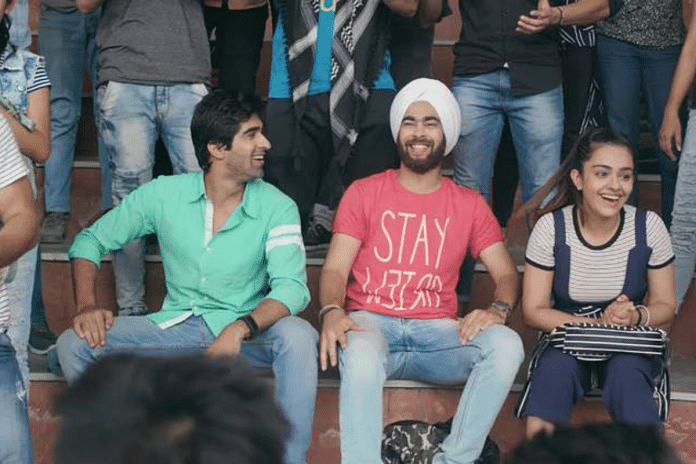New Delhi: The Delhi High Court has upheld an FIR lodged against TVF Media Labs online producer, casting directors and lead actors, saying the contents of one of its web series were “vulgar, obscene and profane”.
It added that ‘College Romance’, a publicly available web series by TVF, transgressed into the area of obscenity.
Justice Swarna Kanta Sharma said that she had to wear earphones to examine the series as the language used is “alarming and shocking” keeping in mind the decorum, in a professional or personal setting.
The Additional Sessions Judge, Rohini Court, had directed filing of the FIR against the producer and directors after a criminal complaint was received. It had directed an FIR under Sections 292 and 294 of the Indian Penal Code and Section 67 and 67A of the Information Technology Act.
This was after a complaint was received that vulgar and obscene language is used in the show, including the title ‘Happily Fucked Up’, and consistent indecent and obscene portrayal of girls and women in the show.
In appeal against the order, TVF approached the high court to set aside the FIR.
Justice Sharma, however, refused to quash the FIR and held that director Simarpreet Singh and actor Apoorva Arora are liable to face action under provisions of the IT Act which prohibit transmission of lascivious material or sexually explicit acts.
In the detailed order passed Monday, the high court explored the legal framework and interplay between freedom of speech and morality.
Also Read: Plea in Supreme Court seeks system that allow citizens to directly petition Parliament
‘Not moral police, but can’t favour profane speech’
Justice Sharma stressed upon the role of courts in defining the contours of public morality and said that College Romance does deprave the morality of impressionable minds. The courts must step in when self-regulatory bodies do not perform their functions, she added.
“No doubt, the courts cannot do moral policing nor do the courts ever want to,” the judge said. However, she said that different situations cannot be subject to a straight jacket formula. It cannot simply be condemned as moral policing.
She said that the dissemination power of electronic media will invite the attention of law enforcement authorities and courts. “One cannot lean in favour of unrestricted, unfettered freedom of profane, indecent and obscene speech and expression by way of web series without classification of the same.”
The court said that the language used in the web series, albeit in Hindi, is not a part of conventional and spoken Hindi.
‘Linguistic decay unacceptable’
Justice Sharma added that a web series which uses such language cannot be permitted to run unhindered by taking shade and safety of arguments of a lack of law on the subject.
“The words and language used in this web series will certainly be found by many as naturally disgusting, dirty and sexual. These swear words and profanities certainly are not part of standard Hindi or any other Indian language,” she said.
Condemning the linguistic decay of Hindi and asserting that the popular culture of India still relies on civil language, the judge observed that it cannot hold such obscenities to be considered ‘natural’ as this would amount to holding that decency cannot be expected in public places.
“Just because a few people may be using such language, they cannot be allowed to corrupt the minds which are impressionable and be told that this is ‘in-thing’, ‘the new ok’, or ‘new normal’ language in the colleges,” she said.
The high court noted that the concept of morality is different and that Indian courts need not look to the West or any other part of the world except towards itself in this regard, and that morality must be adapted to the specific Indian needs.
Justice Sharma specifically referred to the male protagonist Bagga’s statement, saying that the bug of obscene, profane and bad language cannot be allowed to pollute the language of people.
She took note of the fact that the court may be seen as old fashioned in passing such an order, but they will not permit profanity of such nature even with the passing of time.
“The task of the court in this case has been tough as it had to strike a delicate balance between free speech and freedom of expression and transmitting to all…,” the court said, noting the difficult balance it had to strike in the case.
The judge then directed the police to register an FIR against the accused, while asking the Ministry of Electronics and Information Technology (MeitY) to ensure stricter enforcement of the IT Rules, 2021.
Akshat Jain is a student at the National Law University, Delhi, and an intern with ThePrint.
(Edited by Tony Rai)
Also Read: How Nehru added ‘conditions apply’ to Article 19(1)(a) & India lost way to gates of freedom



